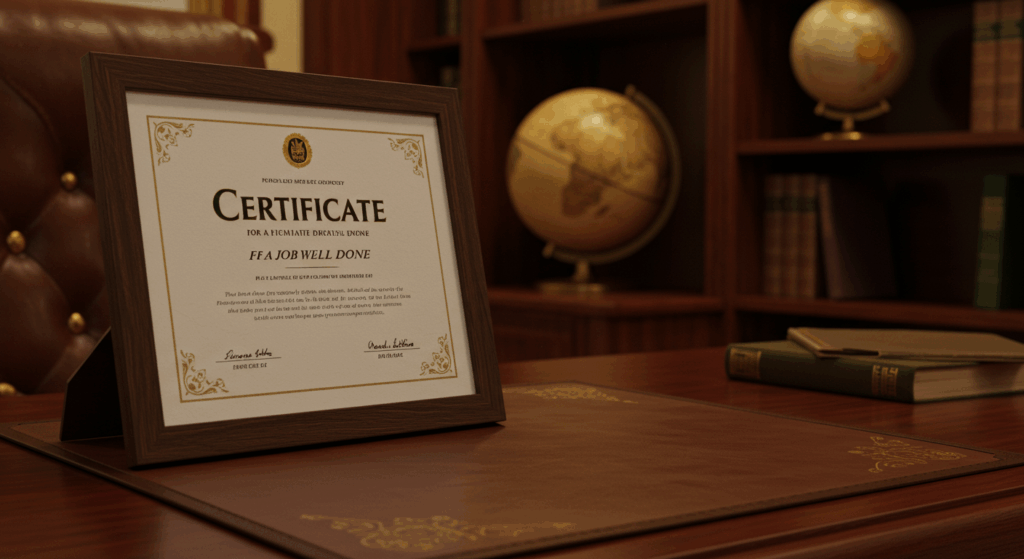Okay, so let’s be real for a sec—public speaking is terrifying for like, 90% of us. You know that feeling when you’re about to present in class, or speak up in a meeting, and suddenly your brain goes blank, your hands are clammy, and your heart is doing its best impression of a drum solo? Yeah, been there. Honestly, if public speaking were a dating app, most of us would probably swipe left. Hard pass.
But here’s the thing: confidence in public speaking isn’t some magical talent you’re born with. It’s a skill—like learning how to drive, or figuring out how to make your iced coffee order sound less ridiculous at Starbucks. You can practice it, improve it, and even get to a point where you actually (wait for it)… enjoy it.
This article is gonna break down how to actually build that confidence. We’ll talk nerves, mindset shifts, tips you can actually use, and ways to Level Up Your Skills so you stop dreading the mic and start owning it.
Why Public Speaking Feels So Hard
The “All Eyes on Me” Panic
Public speaking messes with our brains because it feels like survival mode. Imagine ancient humans standing in front of a crowd—if you messed up, you risked being judged, exiled, or, idk, eaten by a saber-toothed tiger. That anxiety is still kinda baked into us. Your body thinks you’re in danger, even if it’s literally just your coworkers waiting for you to explain a PowerPoint slide.
The Perfection Pressure
A lot of us think public speaking means we have to be flawless—no “ums,” no awkward pauses, no losing your place. Spoiler: nobody talks perfectly. Even TED Talk speakers rehearse like maniacs, and still stumble sometimes. People don’t want robots; they want real humans.
Overthinking Every Single Thing
You ever finish speaking and then replay it in your head like it’s the embarrassing Snapchat story you wish you never posted? Yup. That’s the overthinking loop. It keeps you stuck.
Building Real Confidence (Not Fake-It-Till-You-Make-It Nonsense)
Step 1: Know Your Stuff (Preparation = Power)
You can’t be confident if you’re winging it. Think of it like going on a date—you don’t need to stalk their entire Instagram feed, but knowing something about their favorite music helps. For public speaking, that means:
- Outline your main points.
- Practice saying them out loud, not just in your head.
- Anticipate a couple of questions people might ask.
When you actually know your material, your brain has less room for panic.
Step 2: Practice Like It’s a TikTok Dance
You wouldn’t post a TikTok dance on the first try (unless you’re wildly confident or delusional, lol). You practice until your body kinda memorizes the moves. Same thing here. The more you practice your talk, the less you’ll trip over words. Record yourself. Play it back. Cringe a little. Then do it again. Each round gets smoother.
Step 3: Start Small
If standing on stage feels like climbing Mt. Everest, start with a hill. Volunteer to share updates in a small team meeting. Speak up in class with just one comment. Host a game night and explain the rules. These “mini-reps” are how you slowly Level Up Your Skills without frying your nervous system.
Step 4: Reframe Nerves as Energy
That shaky, heart-racing feeling? It’s literally your body giving you energy. Instead of labeling it as “anxiety,” think of it as fuel. Like, “Wow, my body’s hyped up to help me perform.” It’s the same chemical rush athletes feel before a game. Kinda wild, right?
Practical Tips That Actually Help
Breathe (No, Seriously)
I know, I know—every advice article says “take a deep breath.” But it’s not BS. Try the 4-7-8 method before speaking: inhale for 4, hold for 7, exhale for 8. It chills your nervous system and makes your voice steadier.
Eye Contact Cheat Code
Full-on staring at people can feel creepy. Instead, pick 3–4 people spaced around the room and alternate between them. To the audience, it looks like you’re connecting with everyone. Pro hack.
Pauses Are Your Friend
You don’t need to fill every silence. Pauses make you look thoughtful, not dumb. Think of it like dramatic effect—like when Netflix drops a cliffhanger at the end of an episode and you have to click “Next Episode.” Use pauses like that.
Ditch the Script, Keep Notes
Reading word-for-word makes you sound stiff. But don’t trust your brain to memorize everything either (unless you’re some freak genius). Use bullet points or flashcards as anchors, then talk naturally around them.
Record Yourself (and Survive the Cringe)
Yeah, watching yourself is painful. But it’s the fastest way to notice if you’re talking too fast, saying “like” every five seconds, or waving your hands like you’re landing a plane. Small tweaks = big improvements.
Mindset Shifts That Change the Game
Nobody Cares as Much as You Think
Here’s the truth: your audience isn’t analyzing your every move. They’re thinking about lunch, or their own to-do list, or that text they shouldn’t answer right now. If you stumble, most people won’t even notice.
It’s About Value, Not Performance
You’re not there to impress people with flawless delivery; you’re there to share something useful. Focus on what they need to hear, not on how you look doing it.
Failing Doesn’t End You
So you messed up? Said the wrong word? Forgot a line? Guess what—life goes on. People forget quickly. Every speaker has bombed at least once. It’s basically a rite of passage.
Fun (and Weird) Ways to Practice
- Mirror Talks: Give a mini-speech while brushing your teeth. Yes, with toothpaste foam. Builds multitasking skills.
- Voice Memos: Record a quick pep talk to yourself on your phone. Great for hearing your natural tone.
- Random Audience: Explain your favorite Netflix show plot to your cat, plants, or little sibling. If they don’t walk away, you’re improving.
- Karaoke Nights: Low-key great for stage confidence. If you can survive butchering a Taylor Swift song in public, a work presentation is nothing.
Level Up Your Skills With Everyday Habits
The cool part about public speaking confidence? You don’t need to wait for a big presentation to practice. You can Level Up Your Skills in small, everyday ways:
- Order food with confidence (no mumbling your Starbucks name).
- Say your opinion in group chats, even if it’s unpopular.
- Volunteer to lead icebreakers in class or meetings.
- Try improv comedy (terrifying, but gold for confidence).
Confidence builds like muscles. You don’t get abs after one workout, and you won’t be a fearless speaker after one presentation. But consistent reps? That’s where the magic happens.
My Personal Take (a lil vulnerable moment)
Ngl, I used to absolutely hate public speaking. I once froze in front of a class and just… stood there for like 20 seconds, sweating, while everyone stared. Mortifying. But the more I forced myself to keep trying—small talks, little group things—the less scary it got. Now, I kinda love it. There’s this rush when you nail it, when people actually laugh at your joke or nod along like they’re vibing with you. It’s addictive.
So if you’re reading this and thinking, “Yeah, but I’ll never get there”—trust me, you can.
Wrapping It Up
Public speaking confidence isn’t about being fearless; it’s about learning to ride the nerves instead of letting them crush you. It’s about prep, practice, mindset, and baby steps that add up.
If you remember nothing else from this ramble, remember this: your audience isn’t rooting for you to fail—they want you to do well. And with a little practice, you’ll surprise yourself with how good you can get.
So go ahead—volunteer for that presentation, speak up in that meeting, say yes to that toast at your bestie’s wedding. Each time, you’re gonna Level Up Your Skills, and soon enough, you’ll realize you’re actually good at this.
And hey, if you mess up, just own it, laugh it off, and keep going. That’s what confident speakers do anyway. Now go grab that mic









